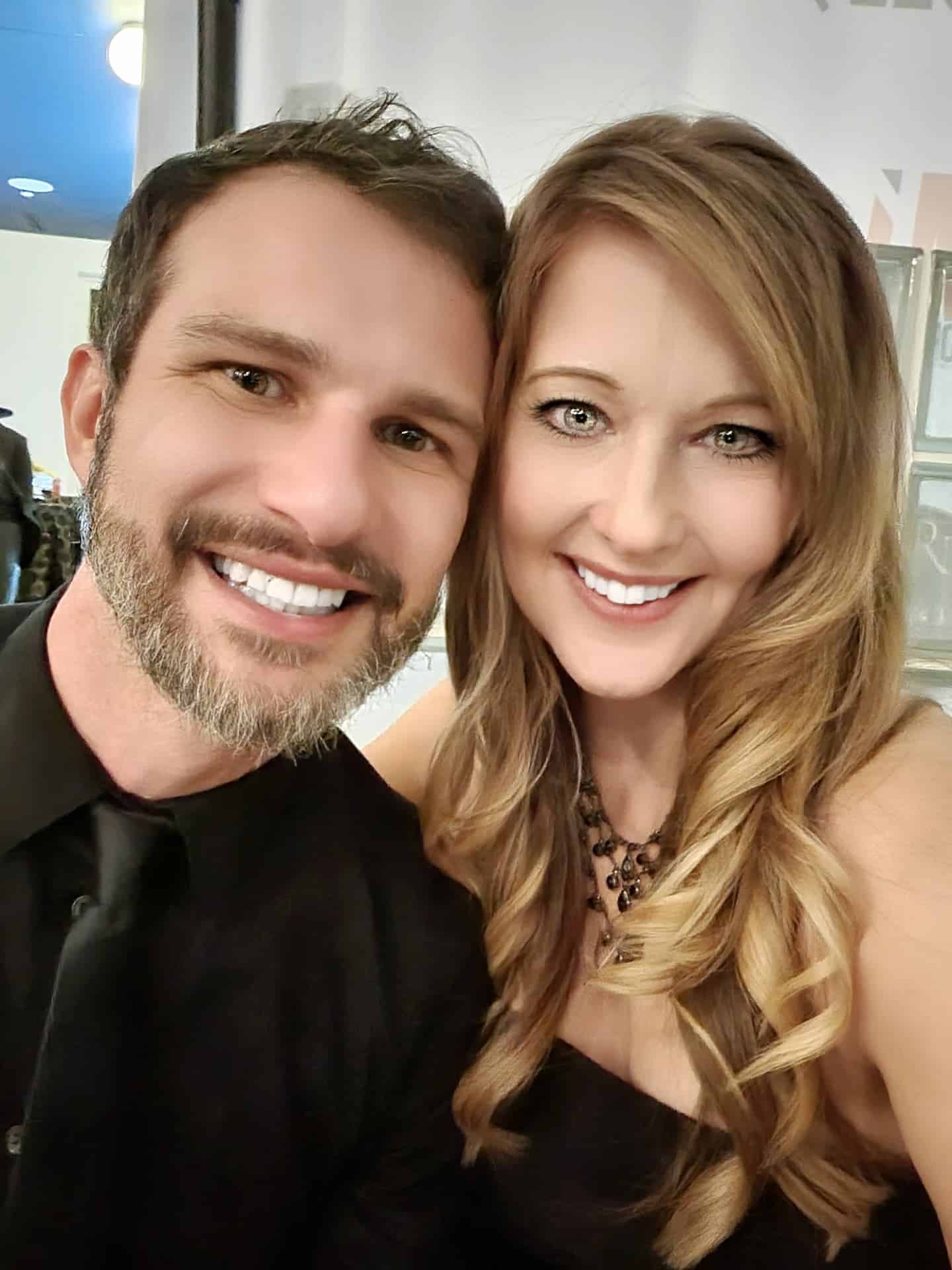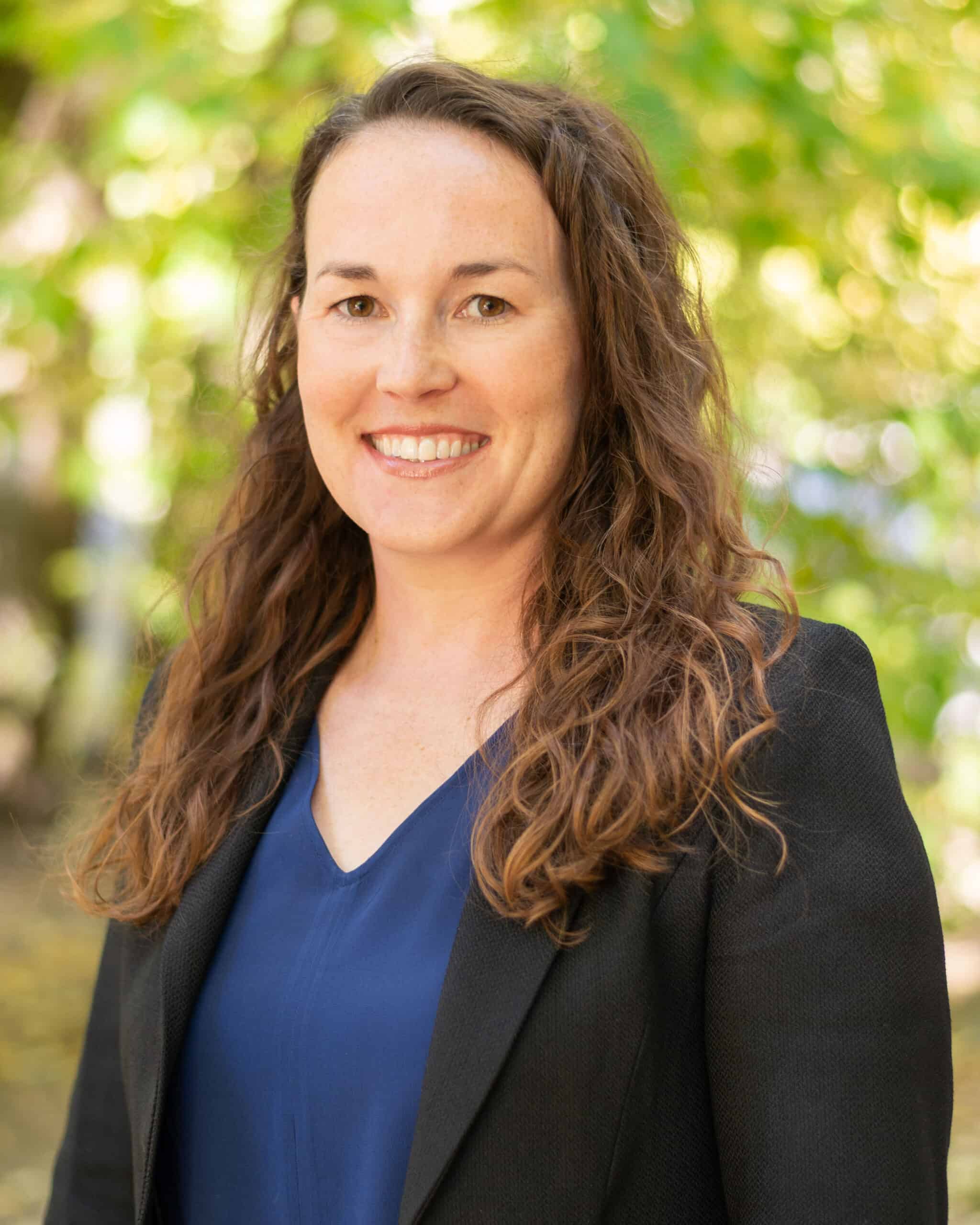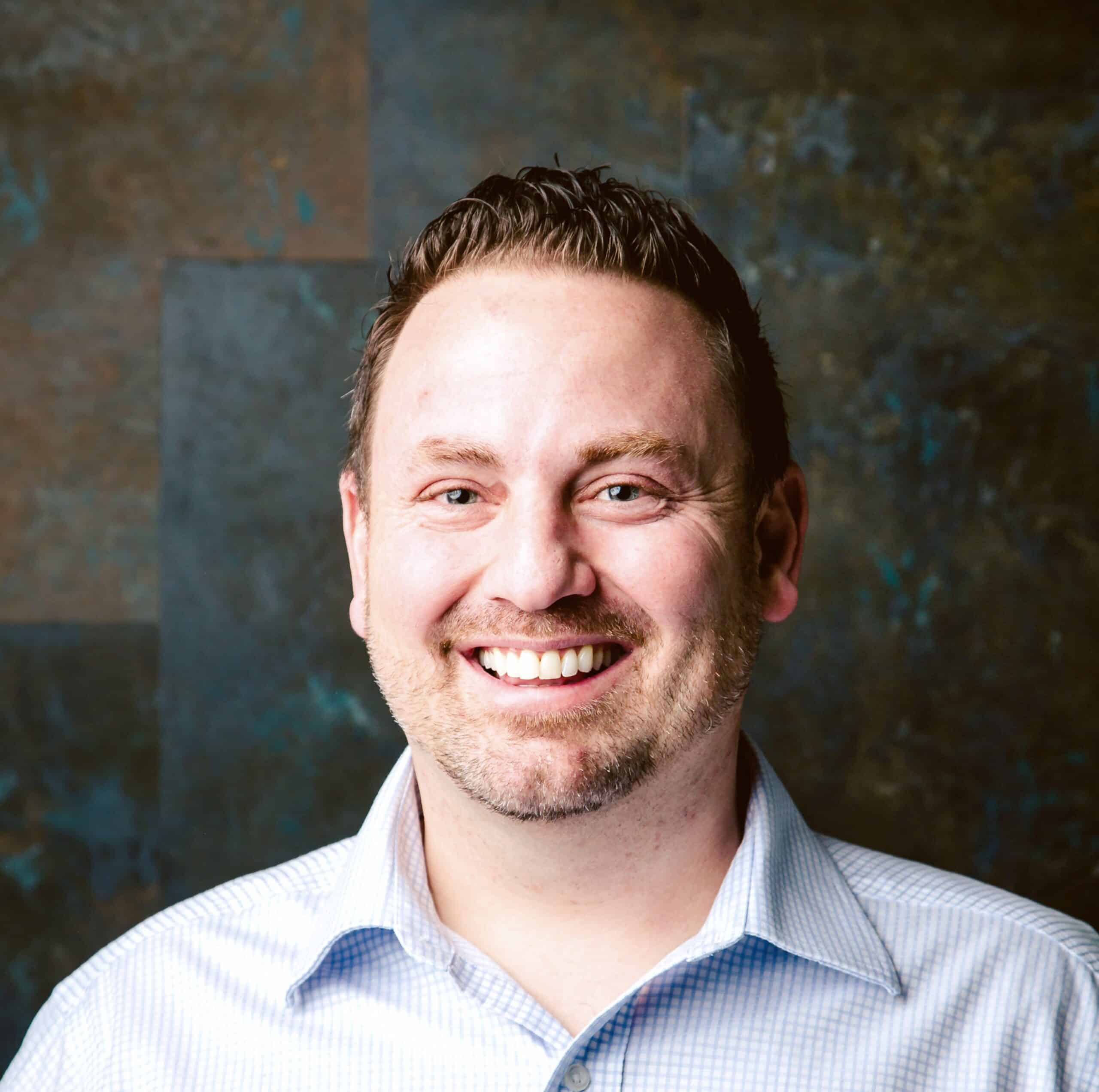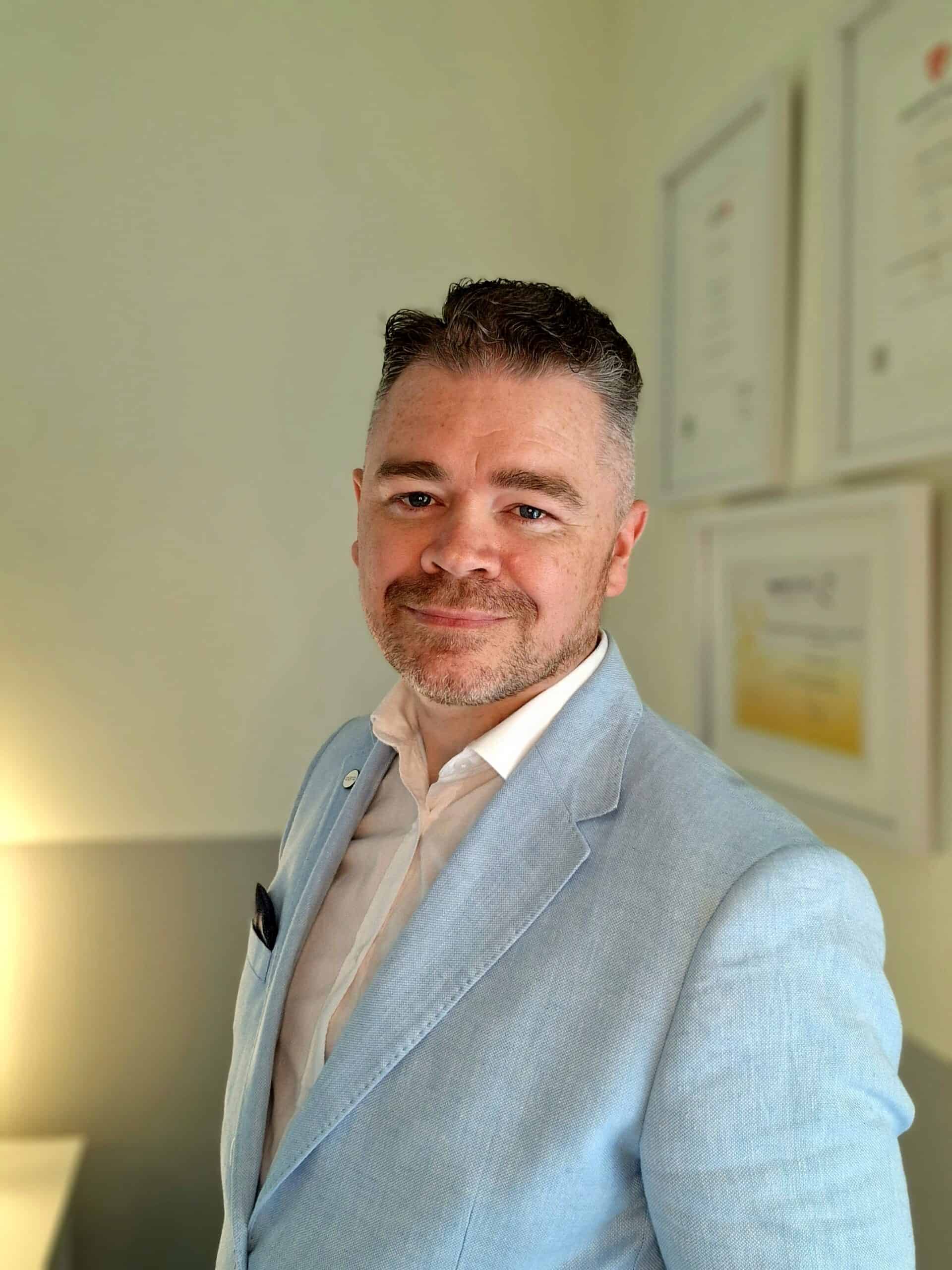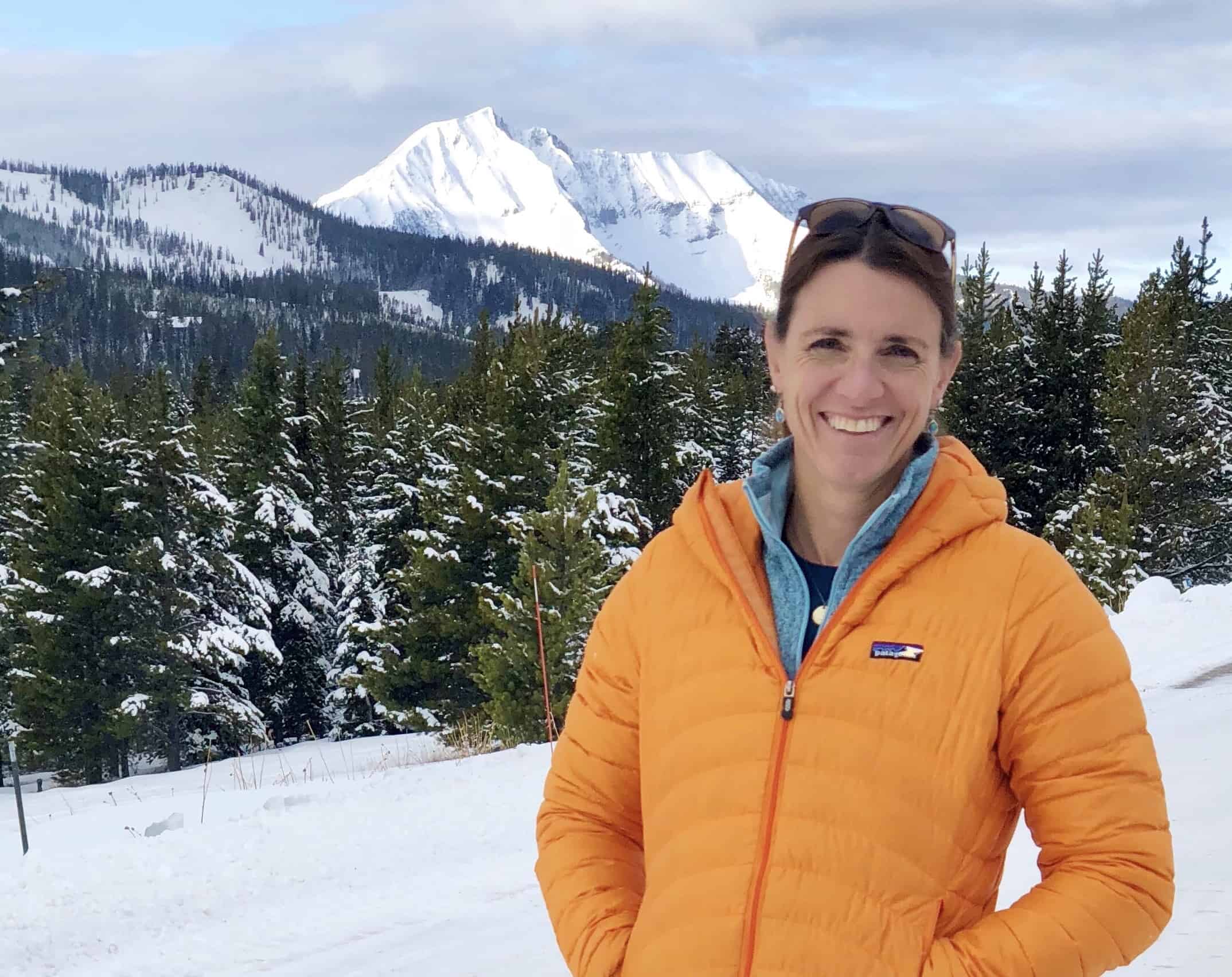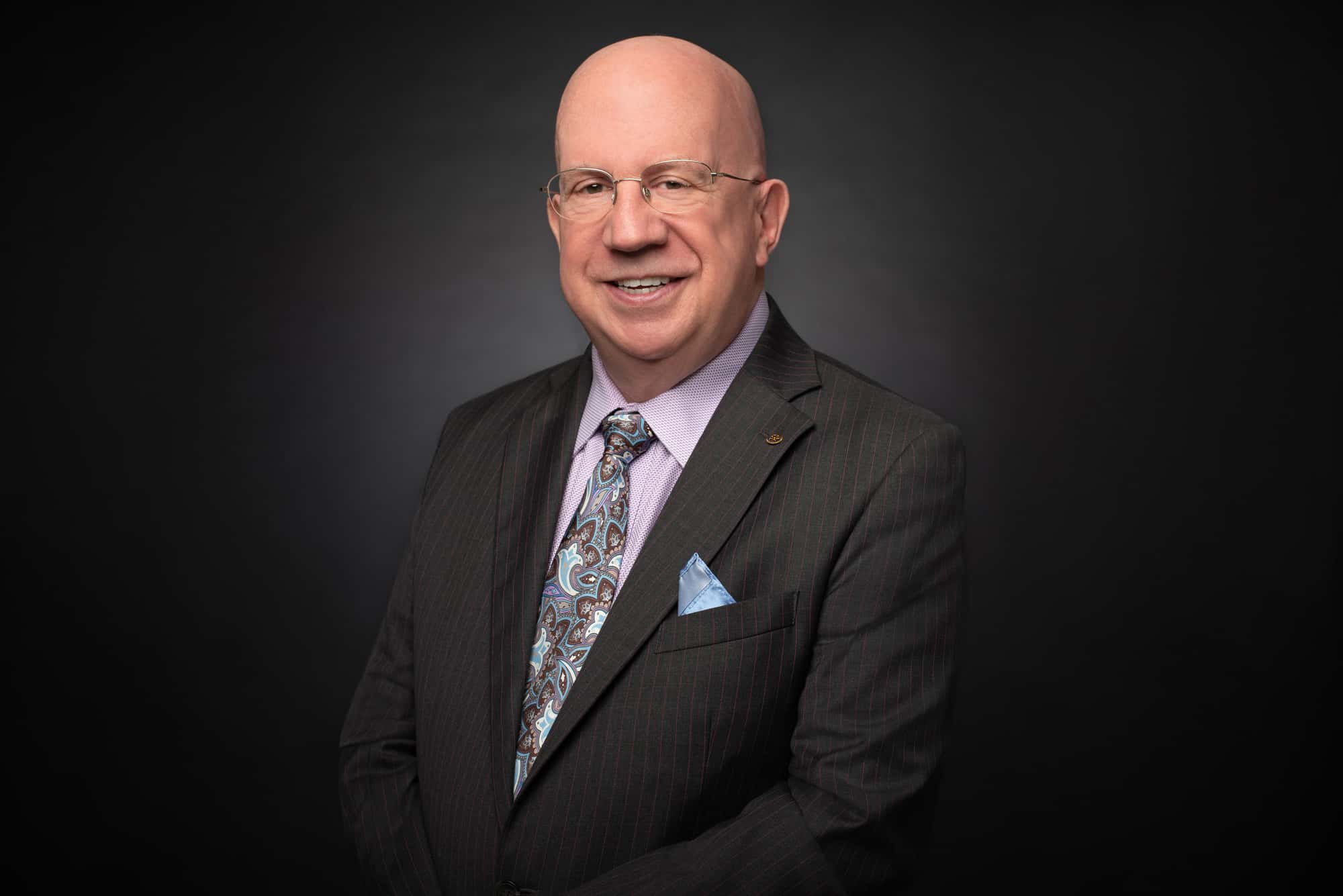Define Your Own Success transcript – Jesse Biondi and Melissa LeEllen
Define Your Own Success with Jesse Biondi and Melissa LeEllen
Melissa & Jesse
[00:00:00] Miriam: Hey guys, today it is super fun because it is my first time interviewing two people at once. I have Melissa and Jessie here today, and they are the owners and creators of Creative Global Entertainment. And there’s so much more beyond that. They also have a podcast reimagine success. We’re gonna get into the weeds with all of this, but Melissa, you’re an actress, you’re a marketing director, a producer, a comic book creator, writer, motivational speaker, podcast host.
[00:00:33] That’s a lot of hats to wear. And then Jessie, you’re a musician of all instruments, but cello guitar. . Also a podcast host, producer, teacher, motivational speakers. You guys like are the whole package . So I’m really happy to have you here. I can’t wait to see where our conversation goes.
[00:00:53] Melissa: Thank you so
[00:00:54] Jessie & Melissa: much
[00:00:54] Jesse: for that.
[00:00:54] We’re so happy to be here.
[00:00:56] Melissa: This is so much fun. We love we love what you’re doing by the way. We love everything about your podcast and we are so excited to be a part of it. Yeah.
[00:01:05] Jesse: Our goal in life is just to make the world a better place and what better place to do that than the Leave Better podcast.
[00:01:11] So thank you for having us.
[00:01:13] Defining Success
[00:01:13] Miriam: Awesome. All right. Well, I think where I’m gonna start is your podcast is called Reimagine Success, and something in some of the materials I was reading that I really appreciated is that you said success comes in many forms. Everyone wants to keep up with the Joneses, but it isn’t always what you think it is.
[00:01:33] Yeah. So if we can start there and talk about maybe some of the things you’ve seen and heard. Where people got to success, whatever that means, and it wasn’t what they thought it was gonna be. Mm-hmm. .
[00:01:45] Jesse: Yeah, absolutely. So we live our lives with that as our mentality. You know, everybody wants more money, everybody wants the bigger house, the cars and all that stuff, but honestly, that’s not how we’ve ever defined success.
[00:01:59] We. You know, both of us have strived our whole lives to live a full life. One that we are fulfilled every single day at the end of the day.
[00:02:07] And on our podcast, we’ve got the privilege of just interviewing so many people that have just outstanding stories.
[00:02:14] And what’s cool about every one of these people, Is that all of their stories are so vastly different and you never know where life is taking these people. Like it’s, it’s the chances and the risks that people take. That pay off. And when they say, You know what? I’ve had enough with this mediocre, mundane life that I’m living and I’m ready to live life fully and just with my whole heart. And that’s when we start seeing people just finding actual success.
[00:02:43] Freedom of Choice
[00:02:43] Miriam: Yeah, that makes sense to me. I think I’ve, I have had this challenge of defining success. What is a successful day? Because you’re right, so many people initially think it’s about money. And to be honest, I think it’s about something different. And one of the ideas or concepts I’m playing with is this notion of freedom that you have.
[00:03:03] You have the freedom to make decisions that are. In the best interests of your mental health or your children’s health or like for, I was working on kind of some fi like regular goals and I was thinking, well, what would it mean success to be successful financially? And I thought, Really, it comes down to never having to make a financial decision because I have too little money.
[00:03:30] It comes down to what is the right financial decision. Yes. Like for example, with a pet, you know, I’m a big animal lover and we have a bunch of rescues. I never wanna put down an animal because I don’t have the resources to take care of them. Mm-hmm. , I wanna do that decision because that’s the right decision for them.
[00:03:50] Right. So that kind of freedom. Anyway, What kind of things, as you have interviewed people or you’ve been in the variety of I mean wearing the variety of hats that you wear, what kind of things have you seen of people who they thought this road was gonna take them to success?
Drop Your Ego
[00:04:12] Melissa: We actually had someone on the podcast that was growing their business and he ended up stepping down as CEO and hiring a CEO in his place. So he dropped his ego because it’s really hard for people to do that to, to come on and let someone else take charge of your business. He ended up doing that and.
[00:04:34] A matter of, of just like a year, I believe. Yeah. It was a real short, short amount of time. It was very short. He grew his business 30 million. Wow. And that’s just taking away the ego, stripping away what you feel like you should be doing and, and letting your, your company go where it needs to go. And sometimes it’s, it’s out of the box and, and you think that, that you shouldn’t be doing it that way, but, When you, when you look at the big picture of where you want and where you want your goals to go, then that’s when you can really be clear and you can see what you need as a company and as a whole and as a community.
[00:05:13] We’re an entire community that is lifting each other up, and that is always building and building each other up to be a community.
[00:05:20] To lift each other up. And that’s at the end of the day, you know what a lot of our clients are doing, They’re lifting each other up in ways that’s very unexpected.
[00:05:30] And that’s, that’s all that we’re doing here at Creative Global Entertainment is where a brand elevation marketing company.
[00:05:37] So anything to elevate your brand. That’s, that’s where, that’s where we.
[00:05:42] Elevate Your Brand
[00:05:42] Jesse: And what’s cool too is not only have we seen this in our guest lives, but we’ve seen it in our own lives. Yeah. For me, my whole life before, I’ll say BM before Melissa because we’ve, we’ve been married for a little over a year now and we dated for exactly one year before we got married.
[00:06:01] We were doing some odds and end things, but then I ended up getting another corporate job where I was making more money than I had ever made in my entire life. And I was like, I. This is great. I’m making all this money and everything’s good, except for my soul was dying.
[00:06:15] Yeah. And we are actually both working for this company at the same time. This was right before we really, really launched the new rebranding of Creative Global.
[00:06:24] And by a stroke of luck, as you would have it the company ended up downsizing and cut our entire department. And I say, luck, because most people would look at that and be like, Wow, that’s horrible.
[00:06:39] You both lost your jobs in one fail swoop. And mind you, I was making more money than I’d ever made in my life. She was making more money than me. Melissa was like, All right, we’re gonna the lake, you know, cuz this was last summer.
[00:06:52] Yeah,
Take a Breath
[00:06:52] Melissa: well, I, I had the idea, we need to stop what we’re doing. We need to take a breath, we need to take a pause, and we need to go out and do something that we enjoy, which was the lake. And we got out there and we’re on a raft and we see the mountains in the backdrop. And just the lake is just beautiful and calm.
[00:07:11] Just a calming day. The sun is shining, you know, it’s shining through the trees and it’s just a beautiful day. And we’re relaxed and we’re in a happy place and we just let it go. And then we come back into the office and then that’s when we get busy. You know, you have to take that breath. And that’s what a lot of people forget.
[00:07:31] Jesse: And it’s, it’s crazy though because you know my family. They thought, Oh, you finally got this great job. Everything’s wonderful, You’re on the right path. But that wasn’t the right path for me, the right path for me involved having freedom, having, you know, a life that I’m excited about living and not doing some corporate job that just was literally killing us both and.
Pursue Dreams
[00:07:56] So now we are happier than we’ve ever been. We’re pursuing our dreams, our goals, helping other people in real tangible ways, and it’s just been so fulfilling. And we get to do these little dances all the time because we’re, we’re doing the things that are goals, and we’re reaching those goals and we celebrate all of our victories, big or small.
[00:08:16] Miriam: Wow, so much, first of all, I, I, I just wanna say you guys are clearly newly married, . You guys are super smiley and very happy, which is just fun. It’s fun to see. Secondly unless you come from entrepreneurial parents, they all freak out when you leave the corporate job with the insurance.
[00:08:38] And I mean, parents wanna see their kids do okay, and that feels really safe to them. And entrepreneurism feels not safe at all. Yeah.
[00:08:47] Freedom For Your Soul
[00:08:47] Miriam: What were the clues that th this corporate space was killing your soul?
[00:08:54] Like, h how did it show up and how did you know even before the job disappeared that you needed to like do something? I.
[00:09:04] Melissa: I looked at my life in corporate, and you can take that into any corporate. You know, company that you would like to look at, and the owner is the one who makes the decisions. So, you know, when I was doing my marketing plan, when I was doing my campaigns, you know, I always had to get this approval from the owner and.
[00:09:26] And everything was, was approved. I opened up four businesses from rebranding phase on while I was with them, and it was an amazing learning experience. But what I realized from my soul and what my soul needs is freedom. I need the freedom to express my creativity and the ways that I need to express it.
[00:09:48] So I started my business in 2009 and I said, You know what? I’m gonna do this the way that I wanna do it. And I’ve had a lot of success. Of course, as entrepreneurs, as business owners, there’s rebranding, there’s the economy changes, there’s fluctuations.
[00:10:04] Jesse: You know, for me, I didn’t know about being an entrepreneur. I didn’t know that you could have a life with freedom. And so I took this job and, you know, beyond.
Attitude of Success
[00:10:15] That was really painful to work in that environment. Just the daily nonsense of what we were doing, just. Chipped away a little bit at a time.
[00:10:26] And you know, at first I was like, Oh, well my job’s pretty easy and I can get it done in a short amount of time, and, and that, that ma means that like, I’m getting paid a lot more. But that money didn’t. Make it better that I was doing this garbage work.
[00:10:43] Melissa: Like it doesn’t fulfill you.
[00:10:44] Jesse: Yeah. When, when you’re doing something that you truly, Yeah, just don’t enjoy you, you wake up every day with a sense of dread, like, Oh, I just don’t want to turn on my computer today.
[00:10:55] I don’t wanna put on my dress shirt today. I don’t want to sit behind that desk all day and, and talk to these people all day. And. Wake up with that feeling well the rest of your day is shot. You know, cuz you’re automatically going into something with a bad attitude and a bad mindset. And mindset is the most crucial thing ever.
[00:11:14] If you can’t walk into something with a clear mind and heart and knowing that like you’re doing something that you love, then you’re setting yourself up for failure to begin with.
[00:11:23] It takes a lot of energy and effort to be in a creative space and for us it’s more of a deep rooted passion. Mm-hmm. Without that, our lives are empty and we feel depressed.
Enjoy Your Work
[00:11:37] And so working outside of what it is that you are passionate about is the fastest way to kill yourself, honestly. Mm-hmm. .
[00:11:46] Miriam: Yeah. I forget who said this, but they said, If you love what you do, you’ll never work a day in your life.
[00:11:52] Jesse: That quote rings true with us every single day because since we left that job and are doing creative global, seriously, it never feels like work.
[00:12:01] Melissa: It’s.
[00:12:02] An amazing feeling to know that you are helping a small business, like really get their voice heard and mm-hmm and to elevate their brand. And not, not only that, but it in turn, it helps us. It, it fulfills our soul and we’re able to be creative every single day by doing it.
[00:12:21] Miriam: It’s a win. It sounds like a win.
[00:12:22] You’re in your sweet spot. Okay, so I’m gonna move away from business for a second.
[00:12:27] Since you are newlyweds- a lot of business, it’s super hard on marriages. A lot of marriages go away. And that isn’t just for business owners, it’s for anybody. Yeah. What have you learned in this process about relating to one another?
[00:12:45] Like what gives some good marriage tips? Yeah.
[00:12:49] Communication in Relationships
[00:12:49] Melissa: First of all, communication. It’s so important. So important, and you have to find. Not everyone is gonna like everything that everybody does. Like, you know, someone could love the ballet. The other person doesn’t necessarily love the ballet, but it’s all about balance in a relationship, and it’s about caring and supporting and honestly being each other’s number one fan, Number one cheerleader.
[00:13:16] Number one supporter. Like Jesse. I go to his concert and I know every word to his songs. I, you know, dance I, I support and I don’t care if no one else is dancing in the room. I am dancing because not only this is my husband, but this is, this is my favorite artist in the entire world. And when you think about that, With your partner.
[00:13:41] This is my favorite person in the world. This is my favorite writer in the world. This is my favorite business coach in the world. This is my favorite. You know, whatever you do in life, this is my favorite. And if you go that that day, every single day, and you just really support each other,
[00:13:59] We’ll always be in the honeymoon phase because we’re each other’s number one supporters and each other’s number one cheerleaders.
[00:14:05] And we always communicate with each other every single day.
[00:14:08] Jesse: Yeah. The communication thing, I don’t want to under stress that, Yeah, we spend. Hours and hours just talking to each other every day. Every day. Mm-hmm. and most relationships, you know, somebody goes or both go to work, they come home, they see each other.
Be Honest
[00:14:26] How was work? It was fine. How was your job? Fine. All right. Let’s have dinner. Oh, should we watch tv? Okay, let’s watch TV and then let’s go to sleep. And we don’t talk to people. Mm-hmm. .
[00:14:37] One of the first things I ever said to Melissa. I’m gonna be 100% honest with you about everything all the time, and she said, I will too.
[00:14:46] And we’ve, we’ve. Focused on that. And that helps us with business, that helps us with our personal relationship, that helps us with our friends relationships. Everything we do, we just approach it from a place of honesty. It’s heart driven and we talk, like I said, about everything. Even if it’s ridiculous, we talk about it.
Regular Communication
[00:15:05] And. We, we find that we hardly ever fight because we’re always communicating. Yeah. We, when it comes to business things, we generally get on the same page really quickly because we’re both discussing the, the steps in real time. You know, we’re not waiting until the end of the day and saying, Okay, so now I need to bring this to you.
[00:15:25] I have a song on my album that just came out that says, I spend every hour of every day with you, and I’d still want more.
[00:15:32] Miriam: Sorry guys. You only get 24 hours a day. I know. Yeah. Okay. So I mean, I appreciate, I’m, I’m also a therapist as well as a coach, and so I appreciate many of the things that you’re talking about.
[00:15:46] What happens when you do disagree when you can’t get on the same page, or if you’re committed to honesty, sometimes you’re gonna say something that hurts the other person’s feelings or, You are two individuals who have different opinions about certain things, even if you’re really similar, tell us how you handle some of those
[00:16:05] Melissa: spaces.
[00:16:06] Understanding Disagreements
[00:16:06] Melissa: There’s, there’s been times where we’re, we agree to disagree. It is the best phrase, you know, but we talk, talk about it. Why do you feel, why do you feel that way about this? Well, Of this way or maybe a some past trauma that you’ve gone through. And we just talk about it, like what is the “why” behind it?
[00:16:26] Jesse: Sorry to interrupt, but, or is it our ego that’s making us disagree or something in us that, that is our pride and we, we want to disagree with this because it’s, it’s a personal issue that we need to deal with, so we’re constantly challenging each other to explore those areas as
[00:16:43] Melissa: well.
[00:16:43] When we talk about something and we’re open and honest and we come from a loving place, we both know that we’re coming from a loving place. Anytime that we talk about any, it could be anything absolutely anything. A graphic Jesse design.
[00:16:56] And I’m like, Well, that’s not so great. Let’s, you know, know, Restart over with that. Okay, no worries. Let’s, let’s do it together. You know, there’s, there’s always places as, as long as you come. And, and love, and you come in love with whatever you do. You can, you can overcome your challenges that you have.
[00:17:16] Jesse: It also helps that we both have thick skin as creatives. You can look at me and I could write a song or something or make a graphic or whatever it is I’m working on. You can look at me like, Yeah, I really hate that. And I’ll be like, Oh. Okay.
It’s Your Vision
[00:17:30] What do you hate
[00:17:30] Melissa: about it? Yeah. Or, or what do you hate about it? What can I change? What can I improve on?
[00:17:35] Jesse: Whereas the majority of people would say, you hate my work. You hate what I created . I spent so much time making this and you hate it.
[00:17:44] creative processes, one of those things where like, If you, if you can’t just throw away something that you worked hours and hours and hours on, then you’re in the wrong field because there’s gonna be times like our, our motto for our company is, it’s your vision. We just bring it to life. There’s, there’s times where we miss the vision, and that’s okay because it’s not our vision.
[00:18:05] We’re working for somebody else’s vision and we have an idea. And sometimes that idea is, Sometimes that idea is trash, and if that idea is trash, throw it away as quickly as possible. Yeah. I’ve got a stack of songs like that huge that I will never see the light of day ever, but I wrote them and they helped me to grow and they made me better.
[00:18:26] Mm-hmm. and Melissa has stories and all this stuff that she’s like themes for deadly cramps in her comic book series that she’s created that will never see the light of day, and that’s ok. And people just need to know that it’s okay to, to put your heart and soul into something. And at the end of the day that it wasn’t right.
[00:18:43] Not that it wasn’t good, but it wasn’t right for what was needed. And if you can approach things with that mentality, then that alone solves a lot of issues.
[00:18:52] Small Things
[00:18:52] Miriam: Sure. So I heard you say so many things. I wanna just recap some of ’em and then you correct me if I misheard you. Mm-hmm. , I heard you say Melissa, that you guys deal with stuff while they’re little. And so if you’re, you know, I don’t know. If you’re driving somewhere and you, you’ve got your MAPS program and it’s telling you to turn right and you turn left, if you reroute within a block, it’s just not that big of a deal.
[00:19:17] Mm-hmm. , if you reroute after 25 miles, It’s a much bigger deal. Yeah. Yes. So I’m hearing you say, deal with things while they’re small. And you didn’t say this, but I’m guessing that if you’re speaking at something from a place of love, that you have some forms of respect within your communication style.
[00:19:38] Like you’re not attacking the person, you’re talking about the idea, and the other person has made a choice to not defensive. The truth or the perspective that’s coming out. Those were some of the things that I heard you say.
[00:19:53] And then Jesse, you, this is something that I think very, very many people do not have is this.
[00:20:01] It’s, I, I don’t know why, but it seems like so many people have this feeling of I should be able to do it right or perfect the first time, and if I can’t do it right or perfect the first time, I’m throwing it out and I’m quitting and I’m not have to be terrible at it. Yeah. And I, I just think that we do.
[00:20:21] Keep Trying
[00:20:21] Miriam: Somehow in our brains, and I don’t know if this has been the culture of giving everybody a little prize at the end of the exercise or recital or soccer game or whatever somewhere along the line we have not been taught. You know, if at first you don’t succeed, try try again. Yeah, yeah, yeah.
[00:20:44] Jesse: And we, unfortunately, we see that with our children too.
[00:20:48] So quick example of that, our daughter wanted to play violin. Mm-hmm. I was a strings teacher, so I was starting to teach her some of the basics. And at first she liked it a lot. She was really interested and then she realized that, Oh, you know, I have to spend time practicing this.
[00:21:02] Yeah. And it, it, it is hard and it’s not just gonna be something that I can just pick up once a month. Than do well. And ultimately she decided she didn’t want to play violin anymore cuz it was for whatever reason, she, in my opinion, it was too much work.
[00:21:18] It was too much work. And for, for that mindset, it’s sad because she could have had something in her life that brought her this unbelievable joy, but instead she chose the easier route of just giving it up.
[00:21:33] And as a parent, you don’t wanna. Push kids too hard into doing things, but at the same time you’re like, Come on, just give it a chance.
[00:21:40] And that’s, that’s what we see with a lot of people in business. It’s like so many people have these dreams and they’re like, I’m gonna go for this dream. And the first second, it doesn’t work out exactly the way they thought.
Try Again
[00:21:50] They just quit. It’s like, but the world needs your dream. The world needs that thing that you were going to do, but because you had a little bit of kickback, you’re just gonna throw your hands up and quit. Like that’s really sad because now the world, the entire world is missing out on what you had to offer.
[00:22:07] And we’re just all about telling people, Don’t quit on your dreams. Don’t, don’t stop because it gets hard. Take a breath and try again.
[00:22:16] Miriam: Yeah. I love that. I love that. Who or where did you learn that it’s okay to fail, that you have to try again, that it’s okay to try again or to iterate, or any of those things somewhere along the line?
[00:22:32] That was to both of you.
[00:22:35] Melissa: Hmm. I’ll give a really good example. With Deadly Crimson, I have been working on Deadly Crimson for many years. And this is your comic book, right? This is my comic book, yes. Okay. So Deadly Crimson started out and it’s gone through so many different. Phases, but I never gave up.
[00:22:55] And I, the very first kind of book that I came out is not out for the public and it’s on my computer and that’s where it’s gonna stay . And but if I would’ve said, I’m not gonna do this. I’m not, because you know, it. It’s not good enough. It’s, it’s not good. It’s, it’s then it would never be at the place where it is now.
Try Something Different
[00:23:17] And now it’s a full comic book. So now, Oh, look at that. I have a full comic book. And it’s, that’s beautiful. Completely finished.
[00:23:26] And we’re doing a 23. City, city tour next year, a comic contour, you know, so it’s, it’s growing and it’s getting bigger, but if I would’ve said, This isn’t good enough, I’m not good enough, and I would’ve gotten to that mindset of, I’m not worthy, I’m not good enough, and I would’ve backed down and not done it, then it would never be at the place that it is now and growing exponentially every single day.
[00:23:55] Yeah.
[00:23:56] Jesse: For me, it. Learning this mindset probably had a lot to do with being a musician. You know, I’ve been in professional bands since I was 16 years old, And you’re working with other people, they tell you real quick when you’re doing something that they don’t like and you, you have a choice to make you,
[00:24:13] you can curl into your little ball and feel bad for yourself that you didn’t do it right, or you can try to do something different.
[00:24:22] I guess I grew up in a house where we just didn’t take things as personally. My dad was kind of critical. At times of a lot of the things I did, and he would just tell me exactly the way it was and whether that hurt my feelings or didn’t.
Deal With Your Difficulties
[00:24:38] And I, I just learned to kind of brush it off, take the, the positive out of it that I could take and then get like not dwell on the negative.
[00:24:49] I found myself in certain areas of my life when I wasn’t as mentally strong, I wasn’t. Strong with my, my self-confidence where I let people say negative things to me and I took it really personally.
[00:25:03] And then I would go and evaluate myself later and be like, Why did I take that so hard? What is it about that person and what they said that made me take it as hard as I did?
[00:25:13] And I would have to like deal with those things. And that’s the other problem is most people don’t deal with the things inside of them.
[00:25:20] They. Oh, I’m sad. Let’s brush this under the rug real quick and forget all about it, and then we’ll come back and hope that it never happens again. You can’t do that. You have to deal with your stuff, or else you’ll go into a cycle of just a downward spiral in your life and you’ll, you’ll never get past it.
[00:25:39] Taking Constructive Criticism
[00:25:39] Miriam: Yeah, I hear what you’re saying. For sure. There was a time years ago where I took a creative writing class and I was one of those like teachers, pet kind of kids who got a’s all the time and this was in college, took this class, loved the class, wrote this. Essay. That was huge. Got it. Back First draft c plus.
[00:26:00] And I was like, What, What? And he said, No, this was a, this is really good writing. Keep, keep at it. It’s gonna be an a paper. But, and I, I was like, you gave me a c plus. I mean, I could not get over the stupid grade. Mm-hmm. . And as I worked on it and. Pointed out all sorts of stuff that could be better. It ended up being so much better.
[00:26:27] Yeah. Yeah. And in the end, I was grateful for the feedback he gave me because it took, if he had said, Hey, this is an a, a good job, first draft, you know, here are a couple little things you can tweak. I would’ve been all like, Oh, look at. I’m a writer. Yeah, .
[00:26:43] Jesse: And you would’ve given mediocre
[00:26:45] Melissa: writing and you wouldn’t know what to improve on and what, And those tips go into the next writing or the next story, and the next newsletter and the next, everything that you’re doing.
Make it Yours
[00:26:56] Miriam: Absolutely. It became something I was totally proud of. And I also am a painter, Did this painting not that long ago, Showed it to someone who is close to me and they said, Eh, it’s kind of meh. I don’t know. It needs something here. And I was, and again, I, I was gonna actually put this painting up in my office and have it be for sale.
[00:27:18] I was like, What? Just put it. But I kept thinking about it and thinking about it, and in the end, I made some changes. I like it so much better that I, this other person was like, well, are you gonna sell it? And I was like, No, I like it too much. .
[00:27:36] Melissa: That’s amazing. I love that.
[00:27:38] Jesse: I had a similar experience recently.
[00:27:40] Now I just released my record and the record’s called Power to Change while I was writing the title track for that song. And I had a chorus that I thought was pretty good and I played it for Melissa and she. Yeah, it’s not your best work. And I was. Oh, okay. Okay. So what could be better about it?
The Hard Truth
[00:27:57] She’s like, Well, that course is kind of repetitive. You, it’d be better if you like, came up with some different words for it. And I was like, Oh, cool. So now I changed the words, and again, it’s the title track of the album and I love the song and it’s got this like really cool feel and everything works now, but it would not have worked had I stuck with my original plan and not listened to the voice of reason that I invited into my life.
[00:28:20] And there’s the other thing, you have to. Bring people around you that you can trust. Mm-hmm. , especially if you’re cre a creator, bring people that you can trust that are gonna tell you the hard things and not just be yes men and mm-hmm , just pat you on the head and tell you how good of a job you always do.
[00:28:36] But bring people that will be honest and give you real feedback and that you know that they have your back. And so that way when they do give you a hard thing that you have to swallow. You know that they’re doing it because they actually mean it and they appreciate you and they want to see you do your best.
[00:28:54] Miriam: This is, you know, tremendous information for creatives, but it actually applies to anybody. It applies to a relationship, it applies to parenting, it applies to anything where you are putting out effort. And if you cannot receive feedback and hear, and adjust, then you end up in a silo of yourself, and that’s just never a good space to be.
[00:29:17] How to Find Melissa and Jesse
[00:29:17] Miriam: So Melissa and Jessie, this has been so much fun. I would love to have you guys come back at some point. Definitely. Why don’t we have you tell our audiences how they can find you and of course we’ll put all the information in the show notes.
[00:29:31] Melissa: Of course. So you can find our podcast Reimagine Success at Reimagine Success Pod on any social media platform.
[00:29:40] Jesse: And reimaginesuccesspod.com. Yeah.
[00:29:43] We have a website for our business, Creative Global. If you need any kind of brand elevation or podcast production or any number of things just head over to CreativeGlobalDot.Rocks, and we’ll get you taken care of and see what we can do for you.
[00:29:59] Miriam: Awesome. That’s so great. And as we had mentioned before we started the podcast, my listeners know that we do a donation in your name and you guys chose, chose the Sheldrick Wildlife Trust.
[00:30:10] Yes. They rescue baby elephants from moms who have been poached. So we’ll get that sent to you right away and we’ll put that in your daughter’s name so she’ll get the updates about the baby elephants. Thank you again. Yeah, she’s gonna love.
[00:30:24] Jesse: Thank you. Thanks so much you, this has been great Miriam, and I really appreciate you having us on.
[00:30:28] Yeah, and for those of you that don’t know, Miriam’s actually gonna be on our podcast in the near future, so be looking out for that as well cuz she’s a great host and we wanna just say how much we appreciate her and everything she’s doing on this podcast to make this world a little bit better of a place.
[00:30:43] Aw, thank you.
End Credits
Listen to the episode on Apple Podcasts, Spotify, Stitcher, and Google Podcasts, or wherever podcasts are found.
Full audio episode found here.
Transcripts of all episodes can be found here.
All LeaveBetter Podcast episodes can be found here.
Music by Tom Sherlock.

If you are curious to know more, please contact me!
As someone who has been a therapist for over a decade and has been coaching people for over three decades, I am uniquely qualified to address your concerns.

